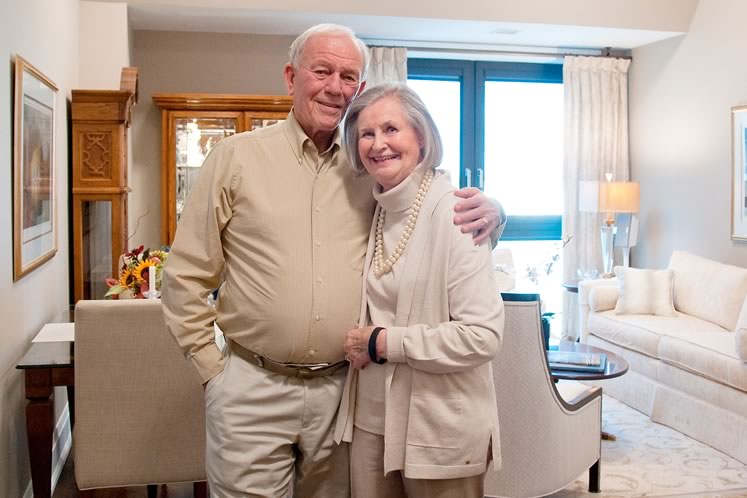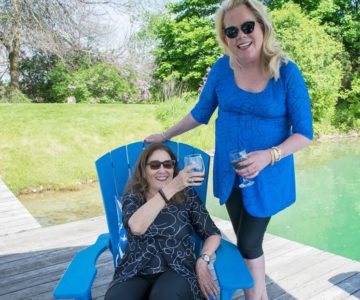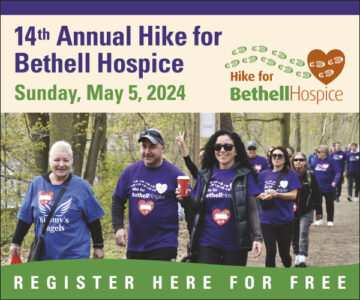Is Now the Right Time for Congregate Living?
Driven by the huge baby boomer demographic, which is wealthier than any age cohort before them, the retirement community industry continues to innovate.
Does the thought of moving to a retirement residence make you hyperventilate? Do you worry that making this move would compromise your independence? Have the horror stories relating to Covid firmed up your resolve to put off congregate living for as long as possible?
Where we live matters, particularly in our senior years.
The decision to move out of their home was forced on Margaret and Jack Fleetwood, each 77, when Margaret had her first stroke in April 2020. She suddenly found herself unable to drive or function in the kitchen, and she tired easily. “When my second stroke happened a month later, we knew things had to change,” she said.

Jack and Margaret Fleetwood moved to a retirement residence when Margaret’s health concerns curbed her independence. Photo by Rosemary Hasner / Black Dog Creative Arts.
The Fleetwoods sold their house and moved to Sorrento Retirement Residence, an upscale retirement home in Bolton. “The move has been mostly positive for us,” said Jack. “The staff is warm and welcoming. While I miss the proximity of nature and the golf community we enjoyed in our former home, Margaret feels safe here knowing there is in-house 24/7 nursing support if she needs it. And I can always drive to the golf course.”
I know I’m fortunate to have support services such as a cleaning crew, gardening helpers and a handyman, but these will take me only so far. The niggling what’s-the-next-step whispers are becoming more insistent, and I’ve noticed a number of people in my sphere either making concrete changes to their living space or mulling over thoughts of moving into a seniors’ facility.
Reasons to consider a change of address vary widely, but what I hear mentioned most often is the burden of keeping ahead of home maintenance or the constant administration required with condominium living. A two-storey home for a person with mobility issues is a definite problem, as is country driving for people with diminished eyesight or motor skills. Or the tipping point could simply be the fact that preparing meals has become drearily tiresome.
What if we were to consider the move to a seniors’ living community as a positive lifestyle choice, one that provides opportunities to create new friendships, learn new skills and participate in fresh activities, all the while taking comfort in the fact that necessary support services and amenities are close at hand?
Yes, there are risks to living in a congregate setting. These were highlighted to the point of horror during the initial stages of Covid. The biggest sticking point in deciding whether to make a move seems to be the prevailing perception that it will inevitably result in a loss of independence. But is this really the case? Or is the success – or failure – of such a move determined more by getting the timing right or by an individual’s attitude?
De-stressing one’s life can improve overall health. The benefits of chucking the clutter of home ownership, driving and cooking are lifestyle modifications worth considering. These benefits can include more time and freedom to explore interests that may have been on the back burner for years. The Fleetwoods, for example, recently returned from a trip to Western Canada, which included a three-day rail adventure on the Rocky Mountaineer.
Research proves that seniors who socialize, are involved and exercise regularly report the highest levels of personal contentment. They live longer, experience less depression and have better cognitive health. We also know that older adults who are physically active have lower rates of stroke, coronary artery disease and high blood pressure.
Driven by the huge baby boomer demographic, which is wealthier than any age cohort before them, the retirement community industry continues to innovate. There is one constant: the more money you have, the better your choices.
Privately owned retirement residences, unlike publicly funded long-term care facilities, come in all shapes and sizes and, rather like cable companies, offer packages when it comes to meals and add-on services. If you start the process early enough, you have the flexibility to choose your type of community, your size of suite, the services you need and the activities in which you want to participate.
Suites in the Fleetwoods’ upscale building in Bolton currently start at $4,000 a month and rise to $8,000, including meals and every amenity imaginable, such as a luxurious theatre, pool, rooftop garden, workout room and hair salon.
Along with publicly funded accommodation and privately run residences, there are hybrid models for senior living, such as Abbeyfield House Caledon in Caledon East, a small, 12-unit not-for-profit residence managed by a volunteer board of directors. Abbeyfield currently charges $1,925 a month for a suite with meals and 24-hour emergency help, but no extra services.
We have no map of what’s to come, and we never live the same day twice. We know decisions become increasingly difficult with advancing years. So it’s important to recognize when it’s time – and to act.
Related Stories

Meet the Bathing Boomers
Jun 22, 2021 | | Over the Next HillFashion or comfort? Caledon friends and swimwear designers Velvet Haney and Rachel Manley believe you can have both.

Covid-19 Has Changed Us
Mar 31, 2021 | | Over the Next HillAnd some of those changes may be for the better.

Friendship is the Secret to Longevity
Nov 24, 2020 | | Over the Next HillAs we’re well aware, the Covid pandemic has taken a toll on both our connectivity and wellbeing, placing our social lives on semi-hold – but friends matter.










